Local Legend: RSA Parade Marshall Bill South
Sue Fea © the Southland App
25 November 2024, 3:38 AM
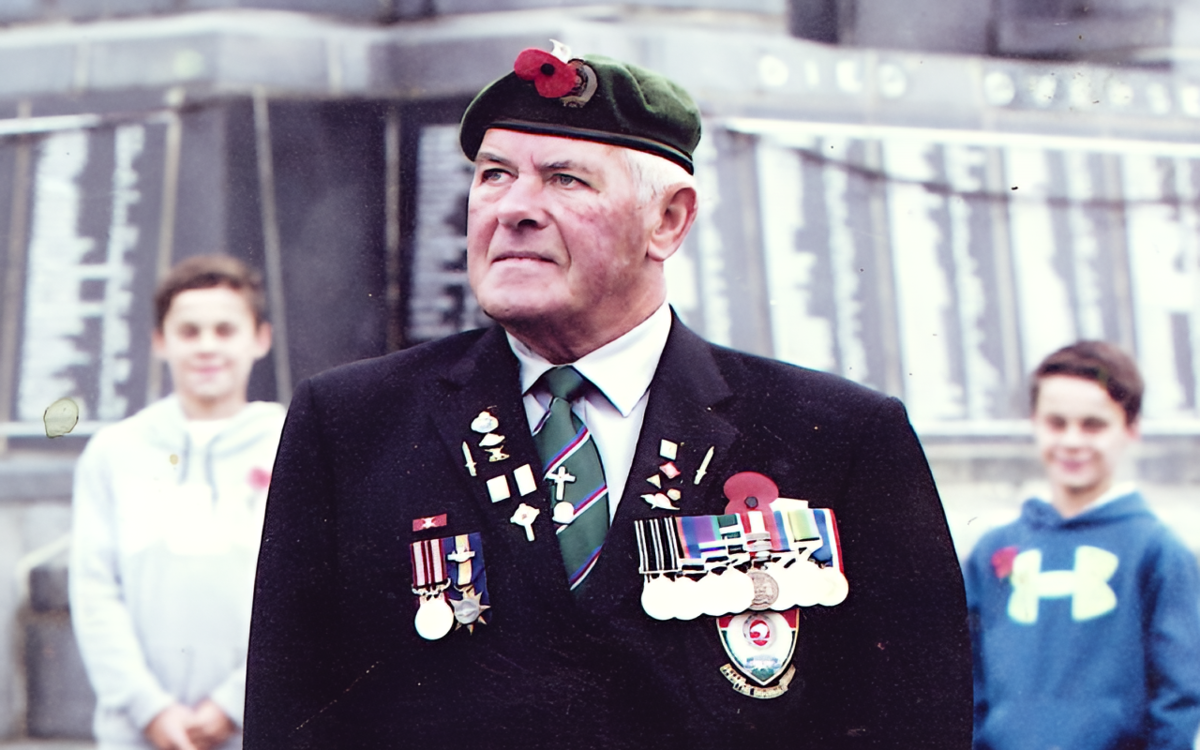 Invercargill RSA Parade Marshall Bill South, flanked by his grandchildren at the Invercargill Cenotaph. Photo: Supplied
Invercargill RSA Parade Marshall Bill South, flanked by his grandchildren at the Invercargill Cenotaph. Photo: SuppliedAt 81, Bill South’s had more than a few brushes with death, but this hardy Southland farmer always seemed to escape unscathed, and in the end his spelling ability wasn’t what saved him.
In 1963, aged 20, Bill applied to join the Police and was told he needed an extra six months’ training to learn to spell. Bill wasn’t having any of that, so the Police force’s loss became the NZ Army’s gain.
Not only would he serve bravely in the jungles of Malaya and Borneo, but Bill served in Southland too, the volunteer Parade Marshall organising local Anzac Dawn Parades and services for 50 years, the longest serving southern marshall to do so.
This Local Legend story is brought to you with the kind support of Macdonald & Weston Funeral Directors
“I’d walked down the street just after the Police turned me down and I met my mate, Tom, who said, “I’m joining the Army and I’m going to Malaya,” Bill says.
“I said, ‘That sounds like a darned good thing and on 3rd June, 1963, I was on my way to Burnham Camp to train until October, ready for two years in Malaya.”
However, during a training camp in Rotorua Bill contracted deadly spinal meningitis.
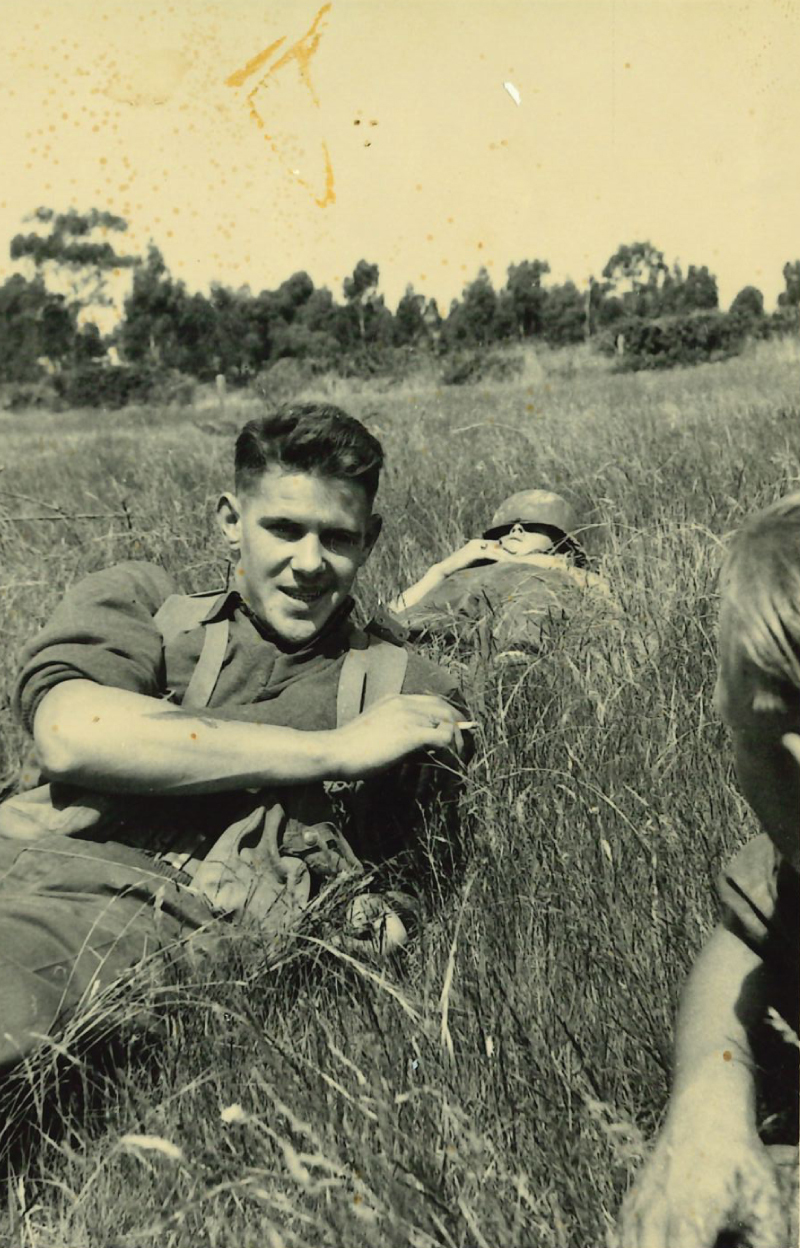
20-year-old Bill South during basic training at Burnham Camp. Photo: Supplied
“They gave me 12 hours to live and flew my mother up to say goodbye. They said if I survived 12 hours I’d make it.”
He reckons he had the Army to thank for that.
“I lost four and a half stone, but my 14 and a half stone weight after my training saved me. I’d never been so fit in my life, but I was pretty sick.”
After recovering in March 1964 Bill was off to the main British military base in Terendak, Malaya, to prepare for his battalion’s first posting on the Thai border.
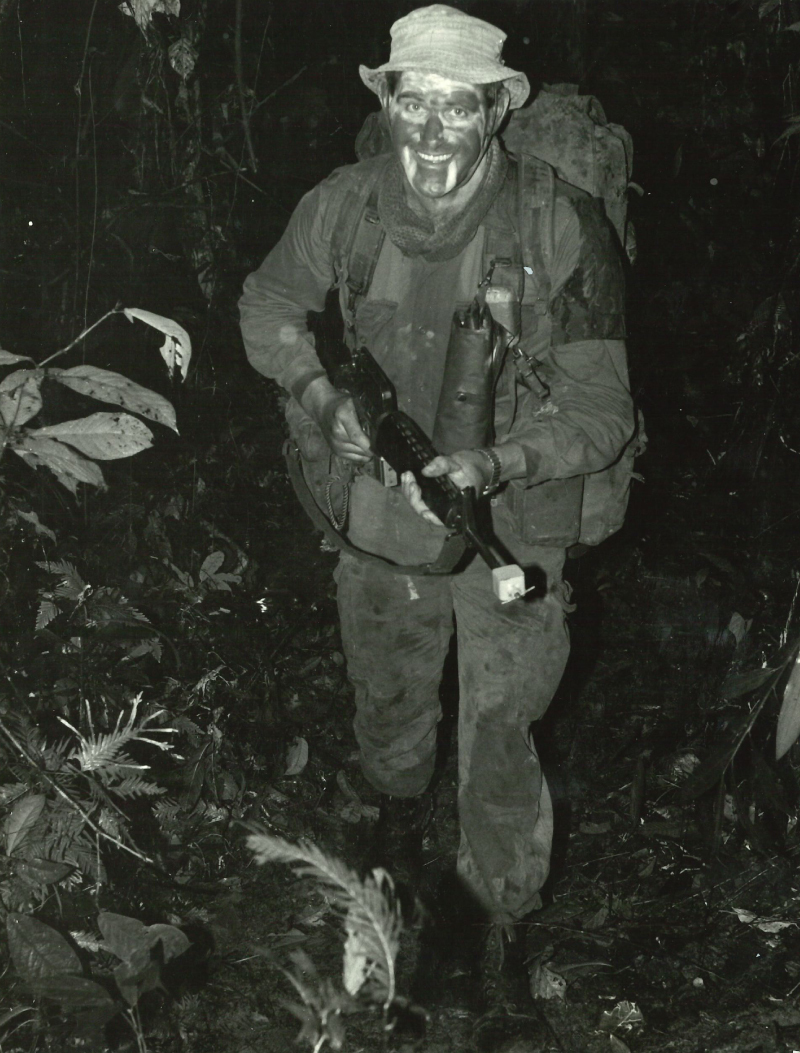
Bill South during camouflage training in Malaya. Photo: Supplied
“The Indonesian CT’s (Communist Terrorists) had threatened to take out Malaya and Singapore before the cock crowed at midnight, but we managed to hold them back,” Bill says.
“More than 250 of them landed one night amongst our seven battalions, so not many survived. They all surrendered.”
It was a baptism of fire for a young country boy from Grove Bush, Southland.
He’d been a night rabbit shooter as a teenager, but the stakes in the Malayan jungle were a lot higher.
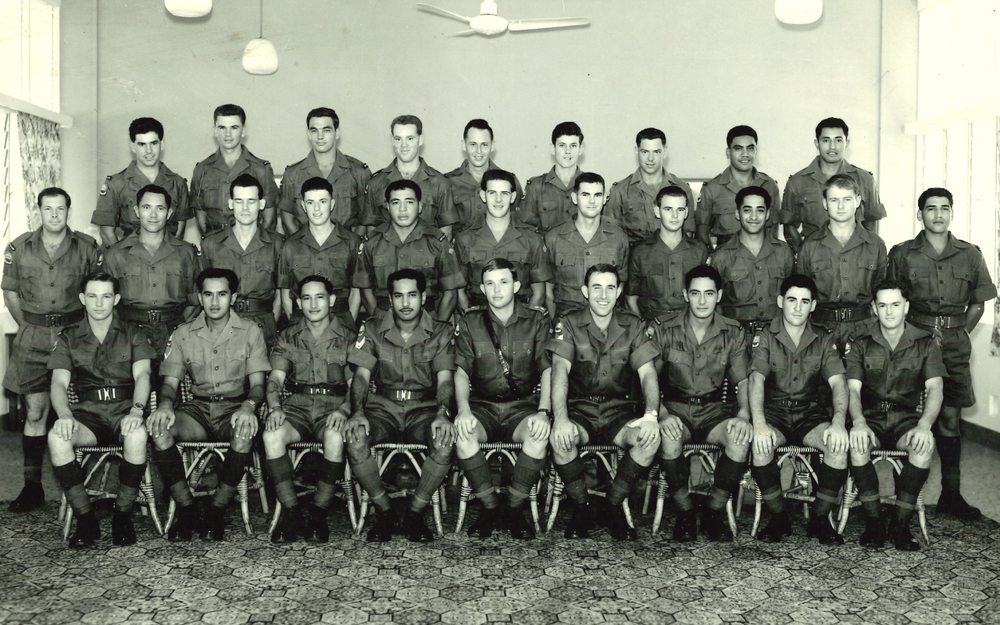
Private Bill South (Sixth from left - Centre row) with the 1st Battalion Royal NZ Infantry Regiment. Photo: Supplied
“There were that many shooting you just knew that’s one of theirs. There was no choice,” he says.
“We became the 1st Royal NZ Infantry Regiment – the Gurr Battalion.”
In 1965 they moved to Sarawak in Borneo for six months, another target for the CTs, the first European battalion and second division there where they relieved the Gurkhas.
“We fought under the 28th Commonwealth Brigade Unit, led by the British.”
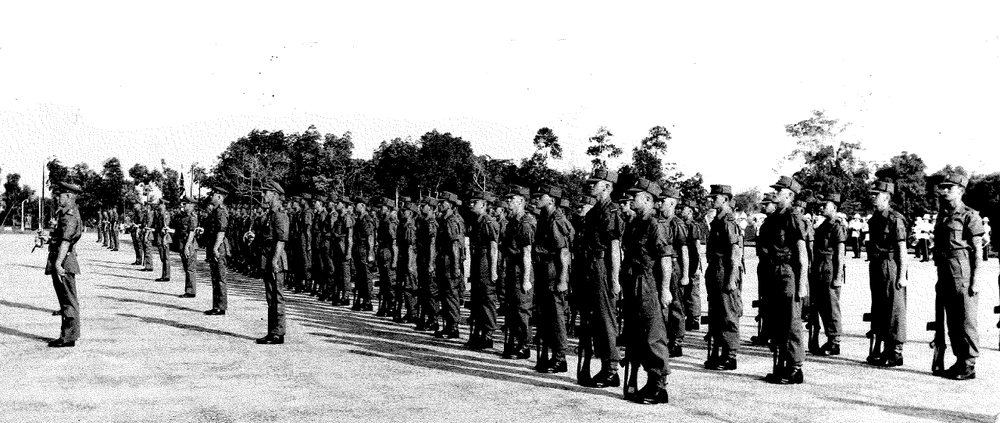
Bill South's first army parade in Malaya. Photo: Supplied
Here Bill endured his first contact with the enemy, their rounds firing back at him.
Out on patrol in the jungle, they’d start ‘harbouring up’, digging shell scrapes to hide in while patrols were out checking.
“Our luckiest escape was walking back to camp after three weeks in the jungle near Sarawak when my cover scout yelled, ‘Grenade!’. Everyone flew in every direction, but it had been raining three days earlier so the fuses must’ve got damp.”
Head scouts were handy. Another told them a tiger had just been lying on the track where they were marching, and they had a run in with a giant 17-foot (5.1m) python coming down a stormwater drain too.
Bill ran over it with the Land Rover then finished it off with a hoe.
He and four others were sent to hunt down some escaping enemy ‘soldiers’ in a mangrove swamp.
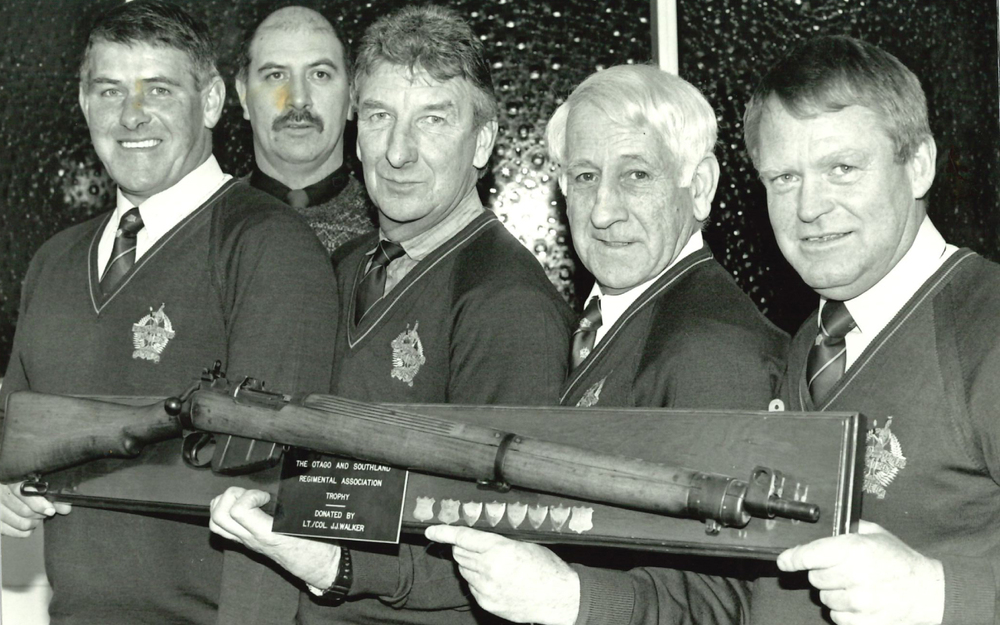
Bill, far left, with the Otago Southland Regimental Association winning team after the JJ Walker Trophy Shoot. Photo: Supplied
“After 10 days we found them in a bus shelter by a remote road with no weapons, the youngest was 14 the other 16,” Bill says.
“They told us they’d been sent with no training to ‘shoot anybody not dressed the same as them’. It was very sad.”
In November 1965 Bill got his wish to be a policeman, posted to the Garrison Military Police, 17 miles (27kms) out of Melaka, overseeing law and order among 7000 troops, breaking up fights, and directing military traffic and families to church.
There were tragedies – two trucks in a Malayan regiment smashed into a mosque killing 44 of their own people.
Then there was the mass brawl at the beach club that lasted 23 hours after a smart-mouthed Aussie soldier swore at and punched an Irishman walking past the military camp bars.
Bill finished his three-years’ service ranked as a Warrant Officer Class 1 Substantive – the highest non-commissioned rank, having earned a Chief of General Staff Service Award for Outstanding Service to the NZ Army, among multiple other service medals.
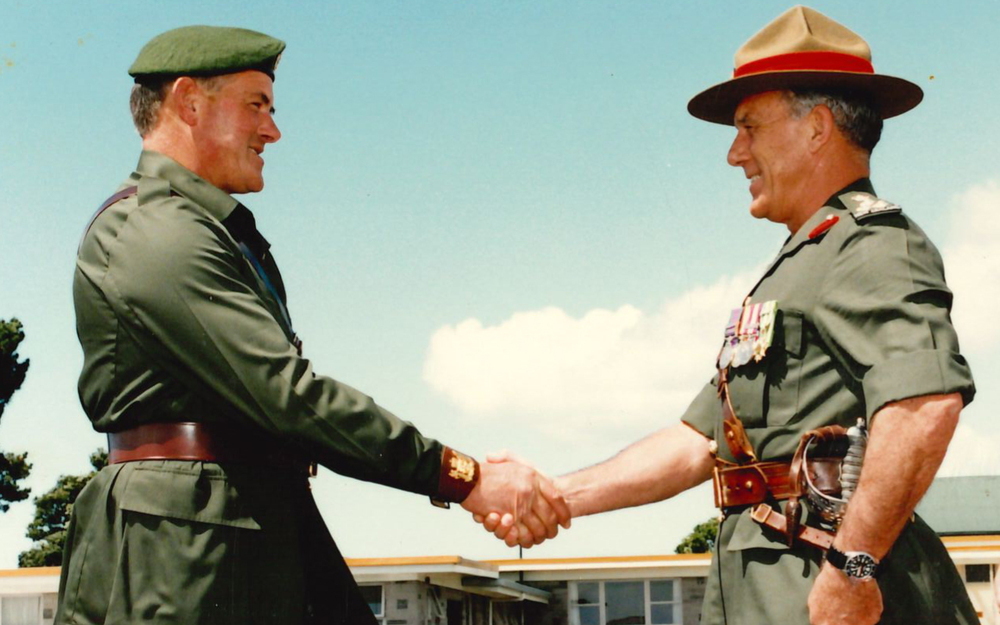
Warrant Officer Class 1 Substantive Bill South being presented with his NZ Defence Medal by the Brigadier in Auckland. Photo: Supplied
Back home he continued working at the freezing works, shearing and driving trucks, then after a break he joined the local territorials in 1973, serving in a voluntary role in Southland for 27 years.
“The late John Dawson, a prison officer, asked me to fill in with just a couple of days’ notice in the first year as he wasn’t well. Then it happened again the following year,” Bill grins.
“They just kept me coming back.”
His first parade in 1973 attracted about 2000 people and his last a few years ago attracted between 4000 and 5000, many of them children which was lovely to see.
“It was challenging at times, but very rewarding.”
This Local Legend story is brought to you with the kind support of Macdonald & Weston Funeral Directors
Throughout those 50 years Bill’s always tirelessly turned up as volunteer organiser of Invercargill’s weekly Wednesday Night Territorial training and parades.
The RSA presented him with a framed photo of himself as Parade Marshall in recognition of the years of service.
There were still World War I vets marching in every dawn parade when Bill first started in 1973, while now there are very few World War II ones remaining and only the odd ‘tough fella’ Korean vet hanging on.
While society now honours returned servicemen and women as they should be and lest we forget, Bill says those old diggers would rather they did: ‘What happened over there stays there,” he says.
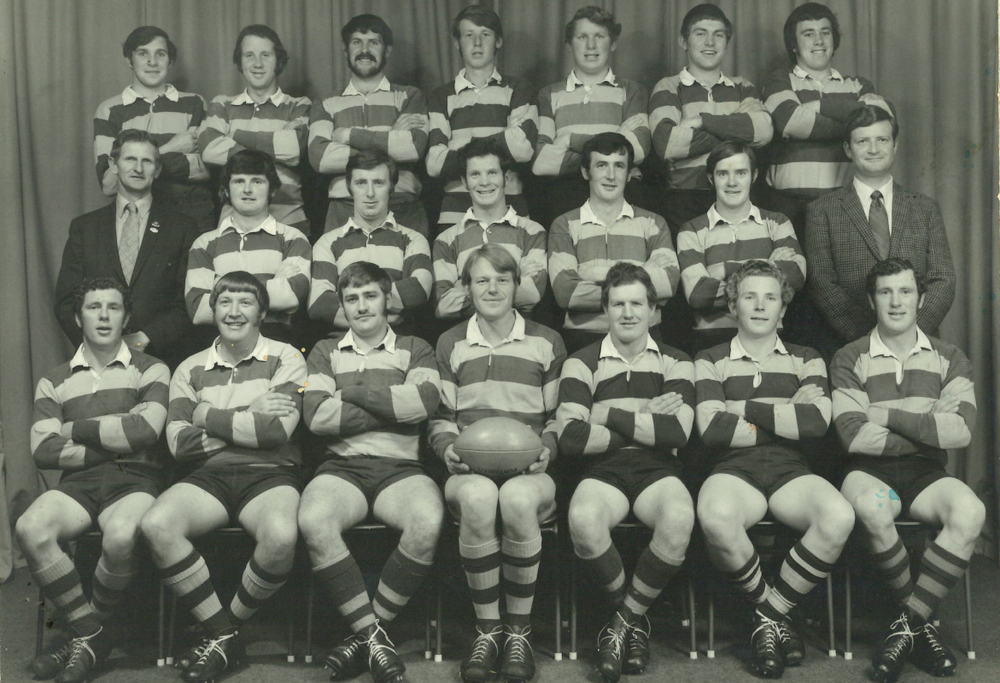
Wrights Bush senior rugby team 1972 - winners of the Gordon Grieve Conduct Shield. Bill South is 3rd from left in the back row. Photo: Supplied
Farming at Waianiwa and Branxholme Bill only retired to Invercargill early last year.
He’s been at the forefront of Southland rugby in his day, serving as a member of the Central Southland Rugby Selection Committee on its executive and has been president, secretary and player for Wrights Bush Rugby Club.
Son Brad played for Southland in the 1990s while son Nathan is a Southland Claybird Shooting Champion.
Bill’s also been president of the Drummond Golf Club, his lowest ever Handicap, 11, winning the club Junior Championship in his day and enjoying regional team wins.
A serviceman all round, it’s now time to kick back and enjoy his retirement.